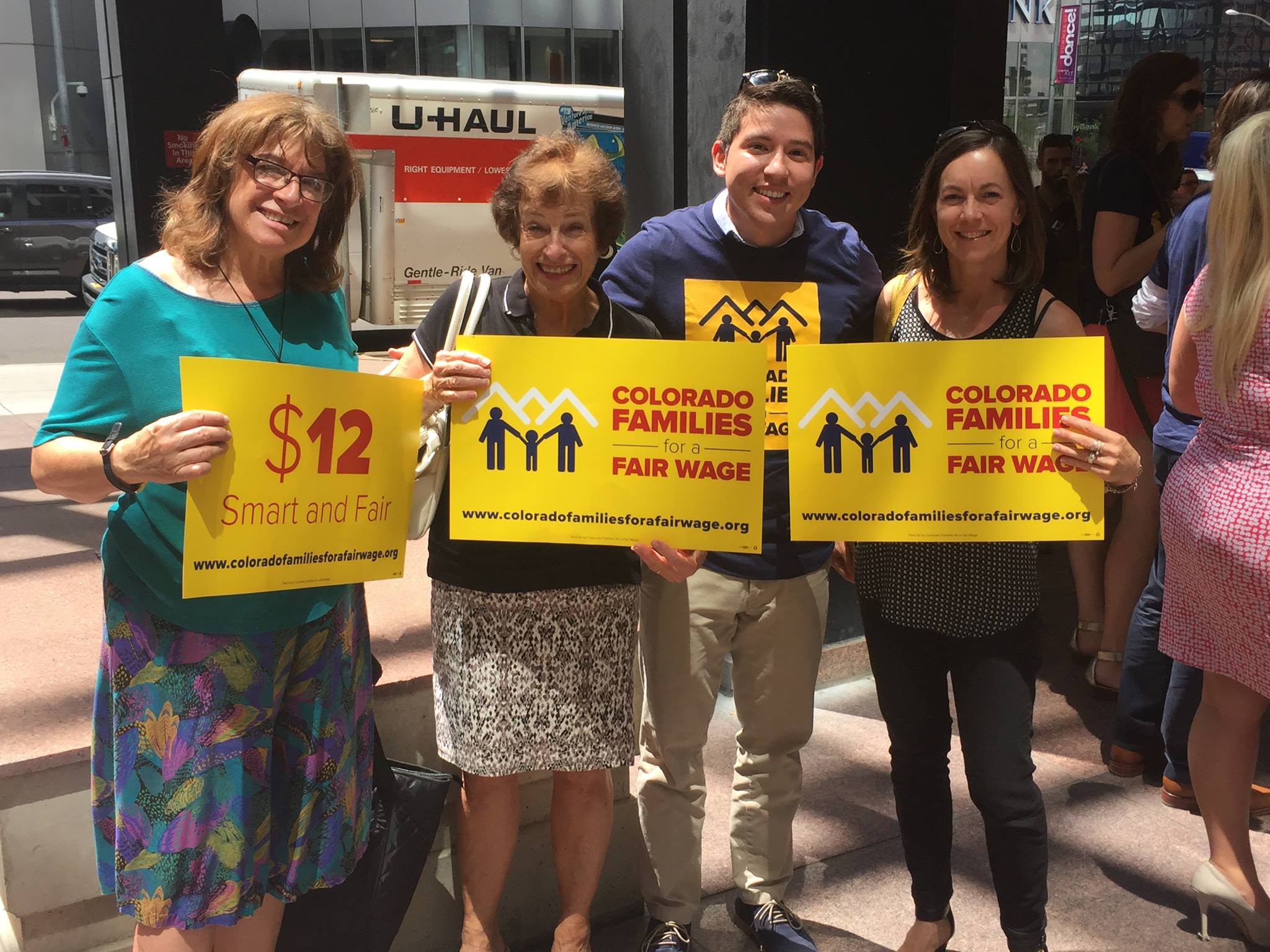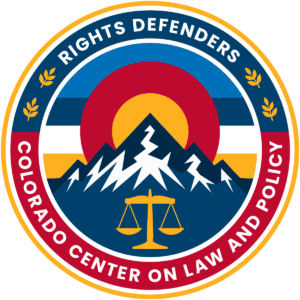CCLP's latest issue brief analyses the implications of the U.S. Supreme Court’s decision to overturn the Chevron doctrine, in conjunction with the related Corner Post decision, and current actions by the second Trump administration.
Recent articles
CCLP testifies in support of protections against junk fees
Chris Nelson provided testimony in support of House Bill 25-1090, Protections Against Deceptive Pricing Practices. CCLP is in support of HB25-1090.
CCLP testifies in support of language access in Colorado
Morgan Turner provided testimony in support of House Bill 25-1153, Statewide Government Language Access Assessment. CCLP is in support of HB25-1153, and it is one of our priority bills.
Press release: New CCLP analysis challenges claims of mass restaurant closures in Denver
A new issue brief examines recent trends in Denver’s restaurant industry and challenges claims that the city’s rising minimum wage is responsible for a significant decline in the number of restaurants.
20th Anniversary Milestones: Grassroots and Policy Come Together for Historical Minimum Wage Campaign

In celebrating the 20th anniversary of Colorado Center on Law & Policy, we are publishing a series of vignettes about the organization’s most significant accomplishments.
It’s no secret that Colorado has been one of the fastest-growing states over the past decade. However, with rapid growth comes a rapid rise in both housing costs and the cost of living. Unfortunately, wages have not kept up with these trends, pushing many families to the financial brink. The 2015-2016 State of Working Colorado report showed that nearly 1 in 3 Coloradans lived either at or near the poverty level, and 46 percent of Coloradans living in poverty lived in deep poverty (that is, an income that is half or lower than the poverty line).
In 2016, the minimum wage in Colorado was $8.31. However, the 2015 Self-Sufficiency Standard indicated that in 57 out of Colorado’s 64 counties, a single adult working an hourly job full-time could not live on this wage without using government-funded public assistance programs like SNAP and Medicaid. For an adult with one preschool-aged child, this wage was under the self-sufficiency standard in every single Colorado county. By contrast, the federal minimum wage is stalled at a woefully inadequate $7.25 an hour.
In early 2015, CCLP and partner organizations viewed this disparity with growing alarm. With a big election year around the corner and state legislators unable to make changes in the minimum wage, it was time to take action in support of Colorado workers. The last minimum wage increase prior to the 2016 initiative was in 2006, when the voters first authorized a state minimum wage that was higher than the federal minimum wage. That initiative resulted in a 33 percent one-time increase that preceded an influx of more than 73,000 new jobs statewide two years after the successful vote.
For the 2016 effort, CCLP teamed up with SEIU Local 105, Together Colorado, the Colorado People’s Alliance, and United for New Economy (UNE), among others, to brainstorm on what a minimum wage increase campaign would look like. CCLP’s Executive Director, Claire Levy, committed early in the campaign to dedicate time and resources to the fight.
“We all came together around the shared value of running a transformational campaign vs. transactional campaign,” said Michelle Webster, CCLP’s Manager of Research and Policy Analysis. The group of advocates wanted not only to help put more money in the pockets of workers in the short-term, but create a foundational narrative around economic security, and a long-lasting commitment to wage security. “We weren’t just coming together for one policy win, we wanted to build power to advance even more policies in the future to help low-income Coloradans,” Webster explained.
In 2015, the partners formed Coloradans for a Fair Minimum Wage, to build support for legislation that would to increase the minimum wage throughout the state and eliminate restrictions on local governments to raise the minimum wage so that workers can better support their families. Although none of the coalition’s bills passed, they set the stage and generated publicity around the issue.
With an election year around the corner, the team developed an amendment to the Colorado constitution to gradually increase the minimum wage statewide to $12 an hour by 2020.
However, the coalition knew that persuading voters to pass the ballot initiative wasn’t going to be easy. With support from the Colorado Restaurant Association, the opposition campaign had poured money into an extensive economic study that purported to show that raising the minimum wage would trigger a loss of 90,000 jobs in Colorado, and result in small businesses shuttering.
The opposition’s report got extensive news coverage as well, including references in The Denver Post, Westword, and the Denver Channel. But the campaign debunked the opposition’s assumptions by showing that the one-time raise in 2006 was followed by positive gains in the job market.
The campaign strategy emphasized getting out and knocking on doors, and a large rally at the capitol which generated coverage on traditional and social media. “It was really important to get out and counter the arguments in person about how the sky was going to fall based on the opposition’s report,” Webster said.
There was one just one final hurdle left to conquer: the ballot itself. “It was a crowded ballot,” said Webster, “and our amendment was down ballot. “Nevertheless, on election night, the campaign’s efforts were rewarded with the amendment’s passing with 54 percent of Coloradans voting in favor of the initiative.
Collaboration, commitment, and the willingness to stand up against skewed data all contributed to the amendment’s success. But even more important was the willingness to take a stand on behalf of workers who do not have bargaining power and say that they too deserve a decent life and fair pay for their hard work. Reasoning that fair pay for one’s work is the most basic measure of justice, CCLP was part of the fight from the beginning.
-By Duranya Freeman

